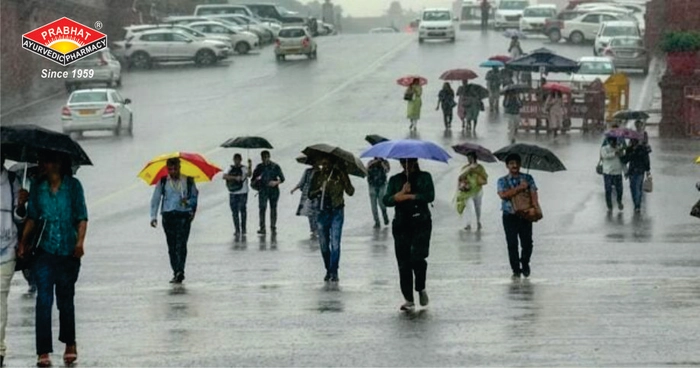Mumbai Rains 2024
Mumbai is currently experiencing significant disruptions due to heavy rainfall. The city and its suburbs are under an 'orange' alert, with predictions of moderate to heavy rainfall, and some areas might see very heavy rain (Hindustan Times). Several parts of the city are facing waterlogging, leading to severe traffic congestion and delays.
Train services have been heavily affected, with numerous cancellations and diversions. This includes major express and local trains, impacting commuters significantly (Hindustan Times). Additionally, landslides have occurred in surrounding areas like Raigad, leading to fatalities and the deployment of National Disaster Response Force (NDRF) teams across various districts to manage the situation (India TV News)
Authorities have issued warnings and advisories, urging residents to stay indoors and avoid non-essential travel. The continuous rain has also resulted in the collapse of some buildings, causing casualties and injuries【6†source】.
Stay updated with local news and heed advisories for your safety.
what are the common diseases that occur due to heavy rainfall and flooding.
Heavy rainfall and flooding can lead to several common diseases due to the increased exposure to contaminated water and the proliferation of disease vectors. Here are some of the most common diseases:
1. Waterborne Diseases:
- Leptospirosis: Caused by bacteria found in water contaminated by animal urine. Symptoms include fever, headache, muscle pain, and vomiting.
- Cholera: Caused by the bacteria (Vibrio cholera), leading to severe diarrhoea and dehydration.
- Hepatitis A and E: Viral infections spread through contaminated food and water, causing liver inflammation.
- Typhoid Fever: Caused by *Salmonella typhi* bacteria, leading to high fever, weakness, stomach pains, headache, and loss of appetite.
2. Vector-borne Diseases:
- Malaria: Spread by Anopheles mosquitoes, causing fever, chills, and flu-like illness.
- Dengue Fever: Transmitted by Aedes mosquitoes, causing high fever, severe headache, pain behind the eyes, joint and muscle pain, rash, and bleeding.
- Zika Virus: Also spread by Aedes mosquitoes, causing fever, rash, conjunctivitis, muscle and joint pain, malaise, and headache.
Pro Tip: Use Neem Oil as an effective and Natural Mosquito Repellent.
3. Respiratory Infections:
- Influenza: Viral infection leading to fever, cough, sore throat, runny or stuffy nose, body aches, headache, chills, and fatigue.
- Pneumonia: Lung infection that can be bacterial, viral, or fungal, causing cough, fever, chills, and difficulty breathing.
4. Skin Infections:
- Dermatitis: Inflammation of the skin due to contact with contaminated water.
- Fungal Infections: Such as athlete's foot or ringworm, exacerbated by prolonged exposure to water.
5. Gastrointestinal Diseases:
- Gastroenteritis: Inflammation of the stomach and intestines, often caused by bacteria, viruses, or parasites, leading to diarrhea, vomiting, and abdominal pain.
Preventive measures include avoiding contact with floodwaters, ensuring safe drinking water, proper sanitation, and mosquito control measures like using insect repellent and bed nets. If symptoms of any of these diseases appear, it is important to seek medical attention promptly.
What are the common preventive measures that should be taken during such conditions
During heavy rainfall and flooding, several preventive measures can help minimize health risks and ensure safety. Here are common preventive actions to take:
1. Avoid Floodwaters:
- Stay away from floodwaters as they may be contaminated with sewage, chemicals, and debris.
- Avoid walking or driving through flooded areas to prevent drowning and injury.
2. Ensure Safe Drinking Water:
- Use bottled water for drinking and cooking if the safety of tap water is compromised.
- Boil water for at least one minute to kill pathogens or use water purification tablets if bottled water is not available.
3. Maintain Good Hygiene:
- Wash hands frequently with soap and clean water, especially before eating or preparing food, and after using the toilet.
- Use hand sanitizer if soap and water are not available.
4. Proper Sanitation:
- Avoid contact with floodwater as much as possible and disinfect any items that have come into contact with it.
- Ensure that food is stored in waterproof containers and that it is kept dry and uncontaminated.
5. Prevent Mosquito Breeding:
- Eliminate standing water around your home where mosquitoes can breed.
- Use insect repellent and sleep under mosquito nets to prevent mosquito bites.
6. Food Safety:
- Discard any food that has come into contact with floodwater.
- Ensure food is cooked thoroughly and stored safely.
7. Personal Protection:
- Wear protective clothing such as rubber boots and gloves when cleaning up after floods.
- Avoid wading through water if you have cuts or open wounds, as this increases the risk of infection.
8. Seek Medical Attention:
- Seek immediate medical attention if you experience symptoms of waterborne or vector-borne diseases such as fever, diarrhea, vomiting, or rash.
- Stay updated on vaccinations, especially for diseases like hepatitis A and tetanus.
9. Stay Informed:
- Monitor local news and weather updates for information on flood warnings and health advisories.
- Follow guidance from local health authorities and emergency services.
10. Community Measures:
- Participate in community efforts to clean and disinfect areas affected by flooding.
- Ensure that community water sources and sanitation facilities are restored and maintained properly.
Taking these preventive measures can help reduce the risk of disease and injury during heavy rainfall and flooding. It's important to stay vigilant and proactive in protecting health and safety.

